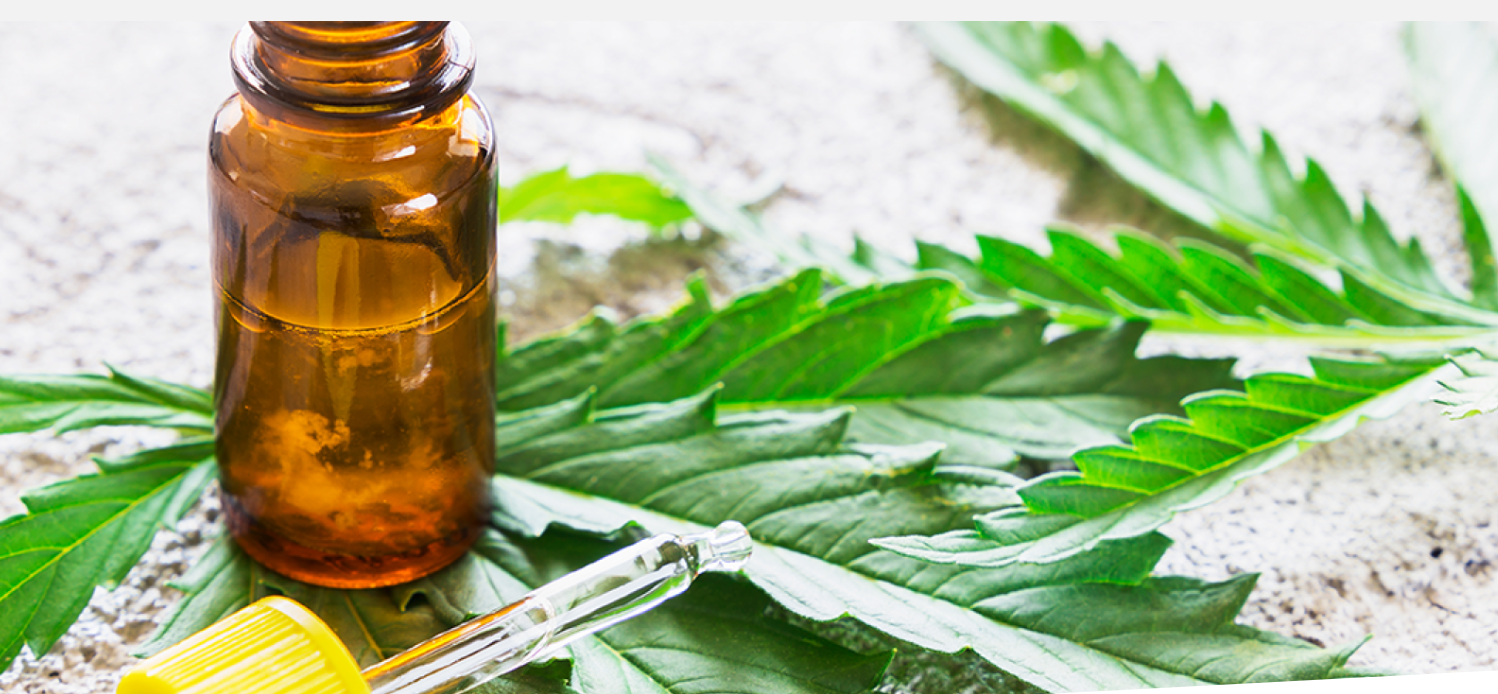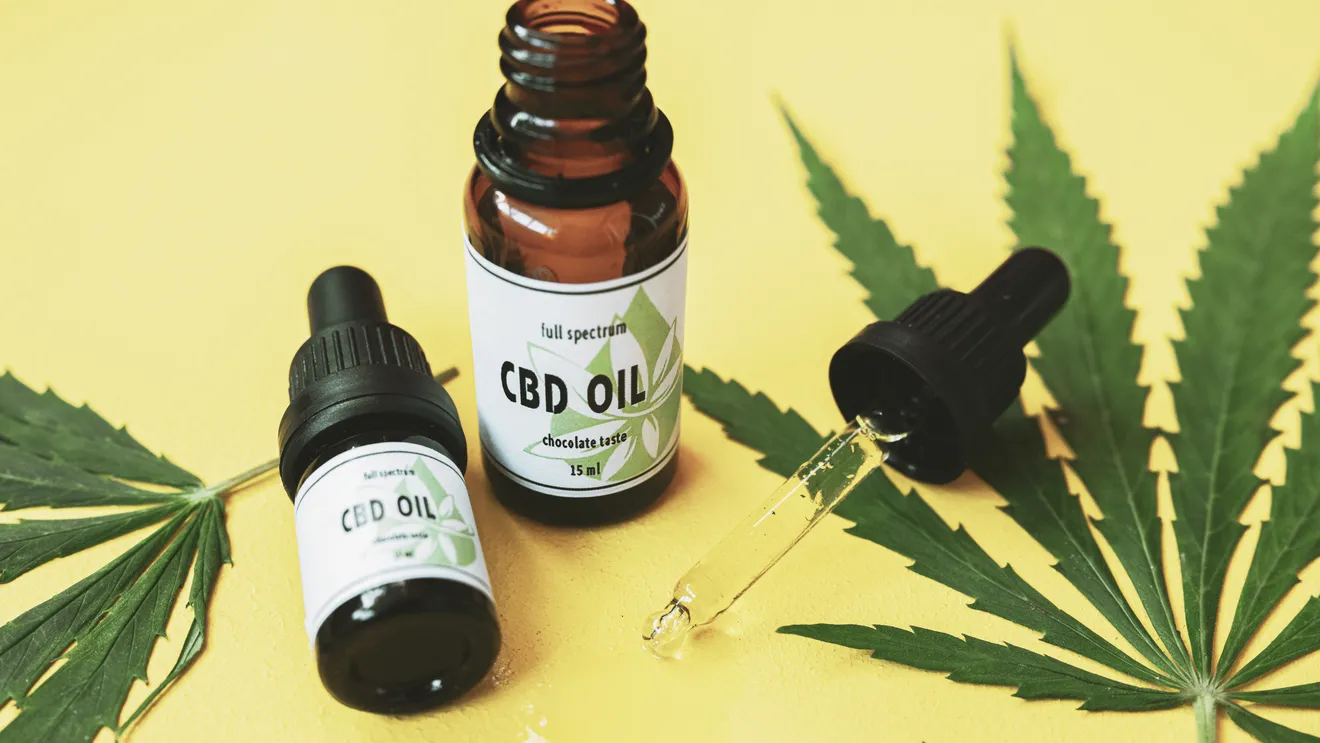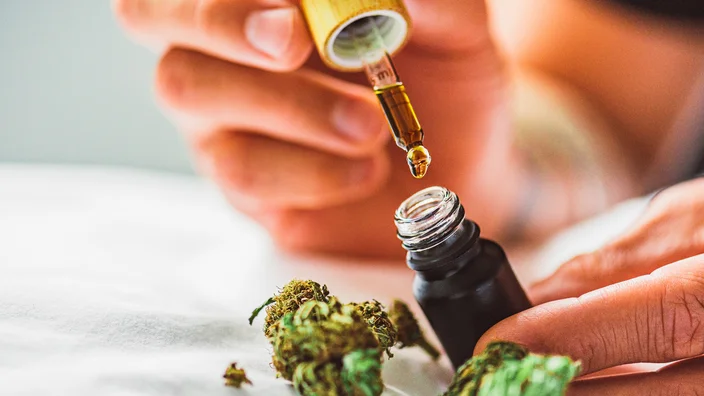
In recent years, CBD, or cannabidiol, has emerged as a prominent player in the Canadian cannabis market, garnering significant attention for its potential health and wellness benefits. This non-psychoactive compound derived from the cannabis plant has witnessed a surge in popularity, becoming a staple in conversations surrounding natural remedies. CBD’s growth in popularity can be attributed to its diverse range of potential health benefits and its legal status in Canada.
CBD stands apart from its psychoactive counterpart, THC, as it doesn’t induce a ‘high’ feeling commonly associated with cannabis use. Instead, CBD has been increasingly recognized for its therapeutic properties, making it a sought-after remedy for various health conditions. As the Canadian cannabis market continues to expand, individuals are turning to CBD for its potential to alleviate symptoms associated with insomnia, depression, anxiety, arthritis, inflammation, epilepsy, and more.
Understanding CBD is crucial for anyone considering incorporating it into their wellness routine. This compound interacts with the endocannabinoid system in the human body, influencing various physiological processes. From promoting relaxation to potentially managing chronic pain, the applications of CBD are diverse and hold promising implications for overall health.
As we delve into the depths of CBD in this article, it is essential to emphasize the significance of comprehending this compound for its potential positive impact on health and wellness. This guide aims to provide a comprehensive overview of the benefits of CBD, exploring its applications in the form of CBD oil and gummies, and shedding light on its efficacy in addressing specific health concerns such as insomnia, depression, arthritis, inflammation, epilepsy, and anxiety. By the end of this exploration, readers will gain valuable insights into how CBD can play a role in enhancing their overall well-being within the Canadian context.
Understanding CBD
CBD, or cannabidiol, represents a fascinating facet of the cannabis plant, renowned for its therapeutic potential. The extraction process of CBD involves obtaining this compound from the cannabis plant, particularly from hemp, which contains high CBD and low THC levels. Through various extraction methods such as CO2 extraction or ethanol extraction, CBD is isolated, ensuring a pure and concentrated form for consumption. This meticulous extraction process contributes to the quality and effectiveness of CBD products, including oils and gummies.
In terms of legal status in Canada, CBD has found itself on the more favorable side of regulations. As of the last update in 2022, CBD derived from industrial hemp containing less than 0.3% THC is legal across the country. This distinction is crucial, as it ensures that individuals can access the potential benefits of CBD without encountering the legal complexities associated with higher THC concentrations. The legal framework surrounding CBD in Canada has paved the way for a thriving market, with a plethora of products available for consumers seeking natural alternatives for health and wellness.
One of the key differentiators between CBD and THC lies in their psychoactive effects. Unlike THC, which induces a euphoric ‘high,’ CBD is non-psychoactive. This fundamental difference makes CBD an attractive option for those seeking therapeutic benefits without the altered state of mind associated with cannabis use. Understanding these distinctions is paramount for consumers looking to make informed choices about their wellness journey, ensuring they select products that align with their preferences and objectives. As the Canadian cannabis landscape evolves, this understanding of CBD, its extraction, legal nuances, and differences from THC becomes increasingly important for those exploring the realm of natural remedies and holistic health practices.
Health Benefits of CBD

CBD oil has emerged as a promising natural remedy for addressing insomnia, a common sleep disorder affecting a significant portion of the population. Numerous studies and testimonials have shed light on the potential efficacy of CBD in promoting better sleep. Research suggests that CBD may influence sleep-wake cycles, alleviate anxiety, and induce a sense of calm, factors that contribute to improved sleep quality.
Several studies have explored the relationship between CBD and insomnia, with findings indicating that CBD may have a positive impact on sleep patterns. Testimonials from individuals who have incorporated CBD oil into their bedtime routine often highlight experiences of falling asleep faster, staying asleep longer, and waking up feeling more refreshed. While individual responses may vary, the growing body of evidence and anecdotal reports underscores the potential of CBD oil as a natural sleep aid.
When considering CBD oil for insomnia, dosage recommendations play a crucial role. It is advisable to start with a low dosage and gradually increase it, monitoring individual responses. The optimal dosage can vary based on factors such as body weight, the severity of insomnia, and personal sensitivity to CBD. While there is no one-size-fits-all approach, a common recommendation is to start with 20-30 mg of CBD per day, taken about 30 minutes before bedtime. Adjustments can be made based on how well the individual responds to the initial dosage.
The potential benefits of using CBD oil for insomnia are encouraging, backed by both scientific studies and real-world experiences. As individuals seek natural alternatives to improve their sleep quality, CBD oil stands out as a viable option. However, it’s crucial to approach CBD usage for sleep with an informed mindset, considering both research findings and individual variations in response to dosage.
CBD For managing depression and anxiety
CBD has garnered considerable attention for its potential role in managing depression and anxiety, two prevalent mental health conditions affecting a significant portion of the population. One of the key mechanisms through which CBD may exert its effects is by influencing serotonin levels in the brain. Serotonin, a neurotransmitter, plays a crucial role in regulating mood, and imbalances are often linked to conditions such as depression and anxiety. CBD is believed to interact with serotonin receptors, potentially modulating the release and uptake of this neurotransmitter, contributing to a more balanced emotional state.
Research exploring the impact of CBD on serotonin levels has shown promising results. Studies have suggested that CBD may enhance serotonin signaling in the brain, leading to anti-anxiety and antidepressant effects. While the exact mechanisms are still under investigation, the potential of CBD to modulate serotonin levels offers a compelling avenue for addressing mental health concerns.
Beyond scientific research, numerous success stories underscore the positive impact of CBD in managing depression and anxiety. Individuals who have incorporated CBD into their wellness routines often report reduced feelings of anxiousness, improved mood, and an overall sense of well-being. While personal experiences may vary, the growing body of anecdotal evidence aligns with the emerging scientific understanding of CBD’s potential in mental health support.
It’s important to note that CBD is not a one-size-fits-all solution, and individuals experiencing depression or anxiety should consult with healthcare professionals for personalized advice. The increasing interest in CBD as a complementary approach to conventional treatments signifies a shift in how people perceive and explore holistic alternatives for mental health support.
CBD for arthritis and inflammation

The anti-inflammatory properties of CBD have positioned it as a potential remedy for managing arthritis and alleviating inflammation-related symptoms. CBD interacts with the endocannabinoid system, which plays a crucial role in regulating various physiological processes, including immune response and inflammation. Studies have indicated that CBD may exert anti-inflammatory effects by modulating immune cell activity and inhibiting the production of inflammatory molecules. This makes CBD a subject of interest for individuals seeking natural alternatives to manage arthritis, a condition characterized by inflammation in the joints.
Real-life experiences of individuals managing arthritis with CBD paint a compelling picture of its potential efficacy. Many users have reported a reduction in pain, stiffness, and swelling after incorporating CBD into their daily routines. While individual responses may vary, the growing number of testimonials highlights the tangible benefits that some individuals with arthritis have experienced through CBD use. Some individuals have even reported improvements in mobility and an enhanced ability to engage in daily activities with less discomfort.
It’s crucial to note that while CBD shows promise in managing arthritis symptoms, it is not a cure for the underlying condition. As with any health-related decision, individuals should consult with healthcare professionals to develop a comprehensive approach to arthritis management. However, the exploration of CBD as a complementary option reflects a broader trend in seeking holistic solutions for chronic conditions. As the Canadian cannabis market offers diverse CBD products, individuals have the opportunity to explore and integrate this natural remedy into their arthritis management plans, guided by both scientific understanding of CBD’s anti-inflammatory properties and the lived experiences of those finding relief.
CBD and epilepsy
The potential of CBD as an alternative treatment for epilepsy has been a subject of considerable interest, backed by both medical cases and research studies. Highlighting specific medical cases where individuals with epilepsy have experienced positive outcomes with CBD underscores its potential therapeutic value. Notable instances include cases where CBD, often in the form of Epidiolex, an FDA-approved CBD medication, has been prescribed to individuals, leading to a reduction in the frequency and severity of seizures.
Research studies further support the notion of CBD as a viable alternative for epilepsy management. Several clinical trials have demonstrated the anticonvulsant properties of CBD, suggesting its potential to reduce seizures in individuals with epilepsy, including those with treatment-resistant forms of the condition. While the exact mechanisms are not fully understood, it is believed that CBD’s interaction with receptors in the endocannabinoid system and other neurotransmitter systems contributes to its anti-epileptic effects.
The use of CBD as an alternative treatment for epilepsy has gained traction, especially in cases where traditional anti-epileptic medications may not provide adequate relief or come with intolerable side effects. Many individuals and their caregivers have reported improvements in seizure control and an overall enhancement in quality of life with the incorporation of CBD into their treatment plans.
It’s important to emphasize that the decision to explore CBD as an alternative treatment for epilepsy should be made in consultation with healthcare professionals, considering individual medical history and the specific nature of the epilepsy condition. However, the evolving landscape of epilepsy management reflects a growing acceptance of holistic approaches, with CBD playing a pivotal role in offering potential relief to individuals grappling with the challenges of epilepsy.
Choosing the Right CBD Product

When it comes to choosing the right CBD product, individuals often find themselves contemplating the merits of CBD oil versus CBD gummies. These two popular forms of CBD consumption offer distinct experiences, catering to different preferences and needs. CBD oil, taken sublingually by placing drops under the tongue, allows for faster absorption into the bloodstream, leading to quicker onset of effects. On the other hand, CBD gummies provide a convenient and discreet way to consume CBD, with the added benefit of precise dosage control in each edible.
The differences in consumption methods between CBD oil and gummies extend beyond just administration. The choice between the two often hinges on individual preferences and lifestyle considerations. CBD oil’s rapid absorption makes it a preferred option for those seeking immediate effects, such as individuals dealing with acute anxiety or insomnia. In contrast, CBD gummies offer a more gradual release of CBD, making them suitable for individuals who prioritize a sustained and slow release of the compound throughout the day.
Considerations for choosing the right CBD product are multifaceted and depend on individual needs. Factors such as the desired onset time, duration of effects, and personal preferences in taste and convenience play a role in the decision-making process. Those who are new to CBD may find gummies more approachable, as they offer a familiar and enjoyable format, masking the earthy taste often associated with CBD oil. Alternatively, individuals seeking a more customizable and potent experience may opt for CBD oil, allowing for precise control over dosage.
Ultimately, the decision between CBD oil and gummies boils down to individual lifestyles, preferences, and health goals. As the Canadian cannabis market continues to expand, offering a plethora of CBD products, individuals have the opportunity to explore and experiment with both oil and gummies, tailoring their CBD experience to align with their unique needs and preferences.
Dosage and Usage Guidelines
Navigating the appropriate dosage and usage guidelines for CBD is essential for individuals seeking to maximize its benefits while minimizing potential side effects. General dosage recommendations for CBD often suggest starting with a low dose and gradually increasing it until the desired effects are achieved. A common starting point is around 20-30 mg per day, with adjustments made based on individual responses. It’s crucial to note that CBD affects individuals differently, and finding the right dosage may require some experimentation.
Several factors influence the ideal CBD dosage for an individual. Weight is a significant consideration, as a higher body weight may necessitate a higher dosage for noticeable effects. The severity of the condition being addressed also plays a role; individuals managing chronic pain or severe anxiety may require higher doses compared to those using CBD for general wellness. It’s advisable for individuals to work closely with healthcare professionals to determine a personalized dosage that aligns with their specific circumstances.
Safe usage guidelines emphasize the importance of starting with low doses and monitoring for any adverse effects. CBD is generally well-tolerated, but potential side effects may include drowsiness, dry mouth, or changes in appetite. It’s crucial to be aware of these possibilities and adjust dosage accordingly. Additionally, individuals using medications should consult with healthcare professionals, as CBD may interact with certain drugs.
Overall, approaching CBD dosage and usage with caution and mindfulness is key. While CBD is considered safe, individual responses may vary, and finding the right balance is a process of self-discovery. By adhering to general dosage recommendations, considering individual factors like weight and condition severity, and remaining vigilant about potential side effects, individuals can incorporate CBD into their wellness routines with confidence.
CBD’s Impact on Overall Health
CBD’s impact on overall health extends beyond addressing specific ailments, emphasizing its potential role in maintaining holistic well-being. The compound interacts with the endocannabinoid system, which regulates various physiological processes, contributing to a sense of balance and harmony within the body. This regulatory influence positions CBD as a multifaceted wellness tool, promoting overall homeostasis and optimal functioning.
One notable aspect of CBD’s contribution to overall health is its antioxidant properties. CBD possesses the ability to neutralize harmful free radicals in the body, which are implicated in oxidative stress and various chronic conditions. By acting as an antioxidant, CBD may play a protective role in cellular health, potentially mitigating the impact of environmental stressors and supporting the body’s natural defense mechanisms.
In addition to its antioxidant properties, CBD has been linked to immune system support. The endocannabinoid system, modulated by CBD, plays a regulatory role in immune response. By influencing immune cell activity and cytokine production, CBD may contribute to maintaining a balanced and responsive immune system. This immune-modulating potential positions CBD as a compound that not only addresses specific health concerns but also fosters resilience and vitality on a broader scale.
As individuals increasingly prioritize proactive approaches to health and wellness, the consideration of CBD as a daily supplement for overall well-being gains significance. The diverse ways in which CBD interacts with the body, from promoting balance in the endocannabinoid system to offering antioxidant support and immune modulation, highlight its potential as a holistic tool for those seeking to optimize their health. In the Canadian cannabis market, where access to high-quality CBD products is expanding, individuals have the opportunity to integrate this versatile compound into their wellness routines, embracing a proactive stance towards comprehensive health and vitality.
Conclusion
In conclusion, the benefits of CBD span a diverse spectrum, positioning it as a versatile and promising component in the realm of natural health and wellness. From addressing specific conditions such as insomnia, depression, arthritis, inflammation, epilepsy, and anxiety to contributing to overall well-being through its antioxidant properties and immune system support, CBD offers a holistic approach to health maintenance. The wealth of studies, testimonials, and evolving research underscores its potential therapeutic value.
As individuals in Canada consider incorporating CBD into their wellness routines, it is crucial to approach CBD usage with a well-informed mindset. By understanding the nuances of CBD, including its extraction process, legal status, and differences from THC, individuals can make decisions aligned with their health objectives. The choice between CBD oil and gummies, considerations for dosage based on factors like weight and condition severity, and an awareness of potential side effects contribute to a comprehensive understanding of CBD usage.
Encouraging informed decision-making is paramount. Seeking guidance from healthcare professionals, staying informed about individual needs and preferences, and remaining open to the evolving landscape of CBD research are crucial steps. The Canadian cannabis market, with its expanding array of high-quality CBD products, provides a supportive environment for individuals to explore and integrate CBD into their wellness journeys. In doing so, individuals not only harness the potential benefits of CBD but also actively contribute to a paradigm shift in holistic health practices, where natural remedies like CBD play a central role in fostering a balanced and thriving lifestyle.



